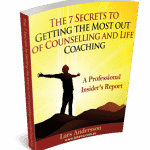Sleep medication may cause premature death
 Research published in the Canadian Journal of Psychiatry [ref. 1] has uncovered some worrying facts about the possible effects of sleep medication commonly used for treating insomnia and anxiety. It appears that taking such sleep medication increases the risk of dying by 36%!
Research published in the Canadian Journal of Psychiatry [ref. 1] has uncovered some worrying facts about the possible effects of sleep medication commonly used for treating insomnia and anxiety. It appears that taking such sleep medication increases the risk of dying by 36%!
The research was conducted by Geneviève Belleville, a professor at Université Laval’s School of Psychology, who analysed data on more than 14,000 Canadians between 18 and 102 years of age. The data was collected every two years during a 12 year period from 1994 to 2007, in Statistics Canada’s National Population Health Survey, and included information on the participants’ lifestyle and health.
The research found that people who reported having used sleep medication to treat insomnia or anxiety had a mortality rate of 15.7%, while those who reported not having used such sleep medication had a rate of 10.5%. After excluding the effects of personal factors that might affect mortality risk, such as e.g. alcohol and tobacco consumption, physical health, physical activity level, Dr Belleville still found that the consumption of sleeping pills or anxiety-relieving medications was associated with a 36% increase in the risk of death.
Various suggestions have been proposed that may explain the link between use of sleep medication and the increased risk of death. One suggestion is that people who take sleep medication and/or anti-anxiety medication are more likely to have falls and other accidents, since such medications affect reaction time, alertness, and coordination. Another suggestion is that these medications may affect the respiratory system in a way that could aggravate breathing problems during sleep. It is also possible that these medications’ effects on the functioning of the central nervous system may impair judgment and thereby increase the risk of suicide.
Alternatives to sleep medication
Regardless of which the explanation may be, many premature deaths could probably have been prevented with a different treatment approach, and there are indeed already well-researched alternatives to sleep medication as a solution to both sleep problems and anxiety.
Please, contact me today to discuss how I may be able to help you if you suffer from sleep problems or anxiety. You can also find more information about my highly effective, drug-free, scientifically supported treatment for sleep problems such as insomnia by visiting the page, Relax-the-Mind Sleep Therapy, to read about a drug-free alternative for conquering insomnia and similar sleep disorders.
Reference:
- Belleville, Geneviève (2010). Mortality Hazard Associated With Anxiolytic and Hypnotic Drug Use in the National Population Health Survey. Canadian Journal of Psychiatry, 55 (9).

